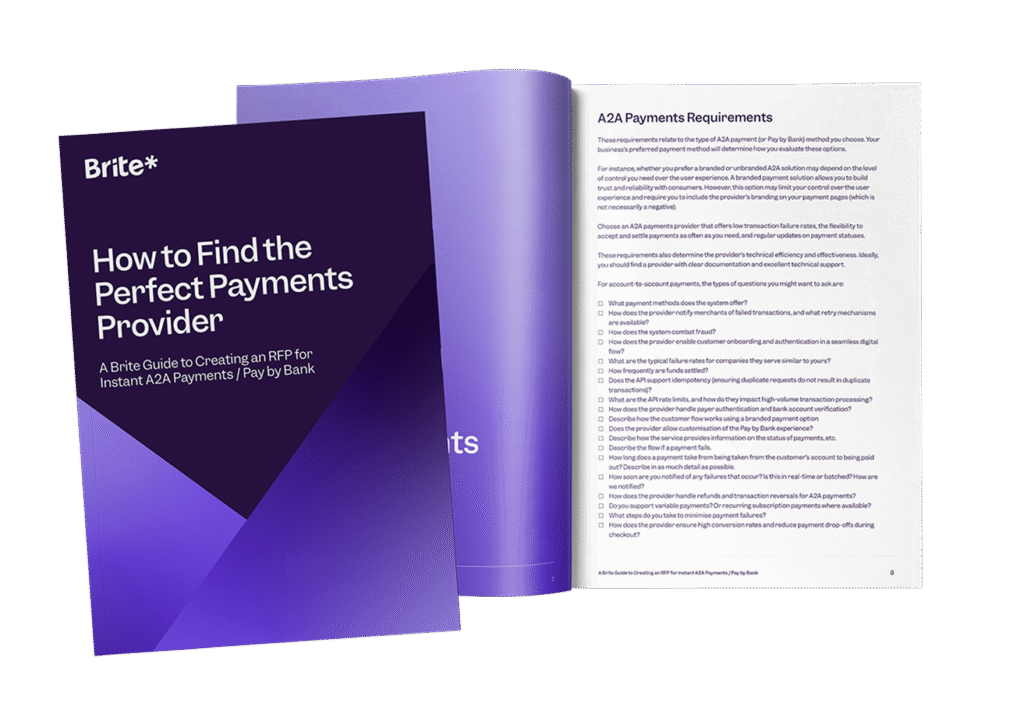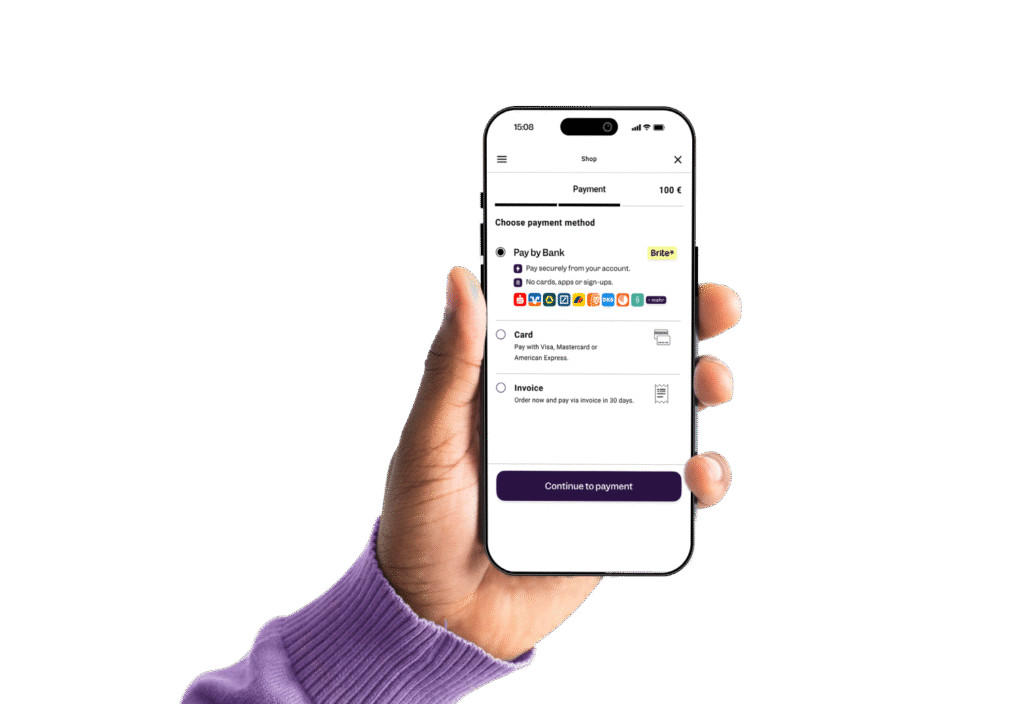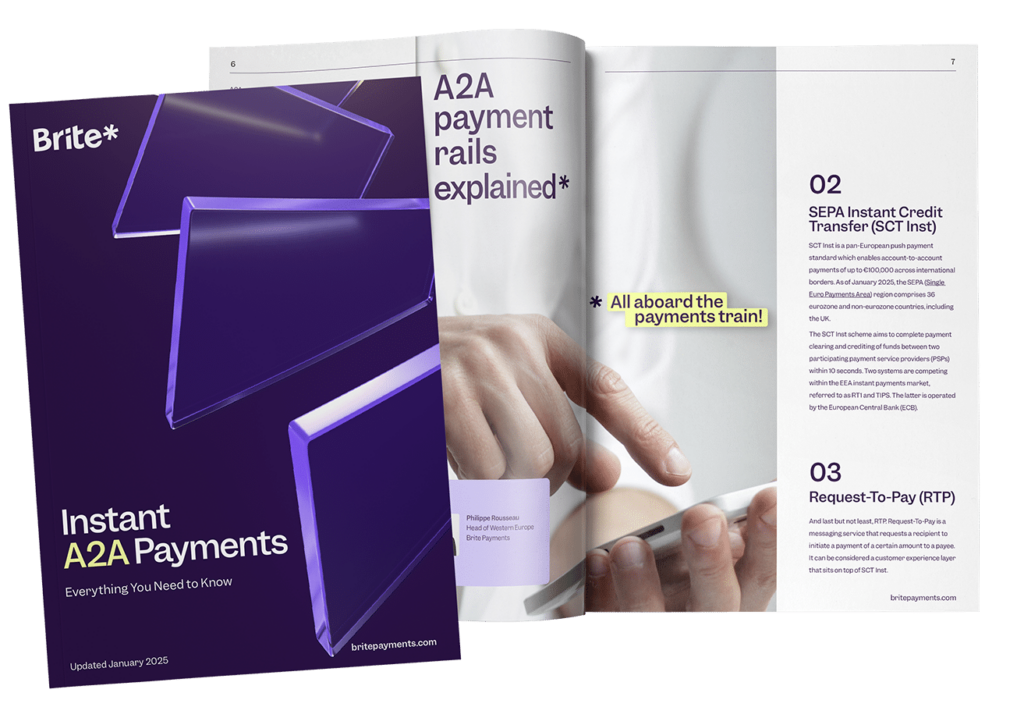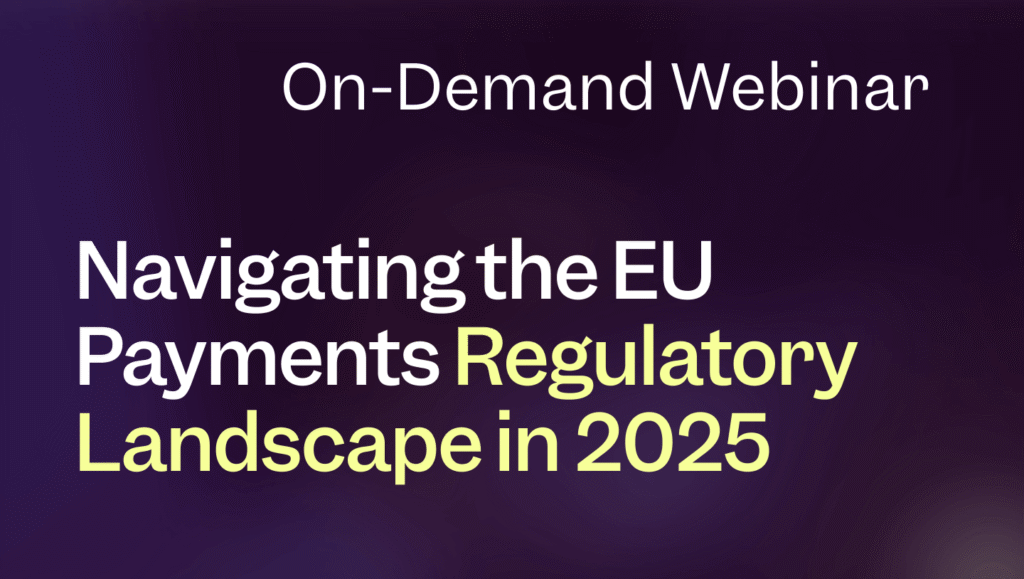News & Resources
- Article
In an increasingly digital landscape, financial data is everywhere, but much of it is messy,...
- Article
Product Marketing Steve Sutherland Payment Acceptance Rate versus Conversion Rate – confused? You’re not alone,...
- Article
When a customer makes a purchase, the transaction goes through a list of stages, including...
- Article
Money makes the world go round. But first, money must be able to go around...
- Company News
Stockholm – 6 May, 2025 – Brite Payments, a specialist provider of instant payments, today...
- Article
Whether you’re buying supplies online, transferring funds, or engaging in financial activities, it’s essential to...
- Article
Choosing the best account-to-account payments (or Pay by Bank) provider for your business can be...
- Article
Significantly reducing credit card merchant fees is becoming increasingly critical. Indeed, it’s fair to say...
- Article
In today’s instant economy, international money transfers remain challenging for millions of individuals, especially migrants...
- Company News
Stockholm – 21 March, 2025 – Brite Payments, a leader in instant bank payments, has...
- Article
Have you ever had a payment rejected because your bank account had a foreign IBAN?...
- Article
Sustainable finance and sustainability in payments have never been so prominent. Rising temperatures worldwide and...
- Article
The Swedish Sea Rescue Society (Sjöräddningssällskapet, SSRS) is one of Sweden’s most trusted and beloved...
- Article
Whether you’re tracking personal expenses or optimising your business’s cash flow, managing multiple financial accounts...
- Article
A major change is coming into force in the EU payments landscape. From January 2025,...
- Article
Alongside the most recent update to the Payment Services Directive, PSD3, the Payment Services Regulation...
- Article
In a rapidly evolving financial landscape, Account Servicing Payment Service Providers (ASPSPs) are reshaping how...






















